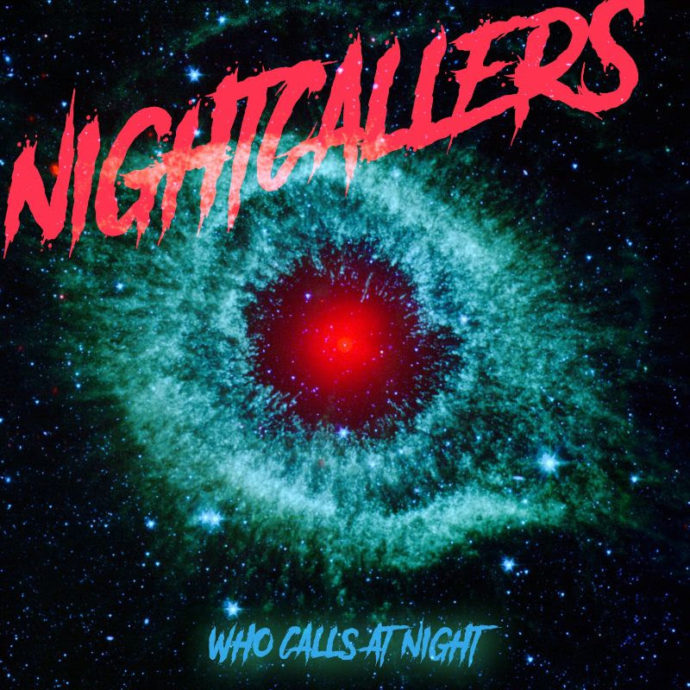Deep in the abyss of new music, Nightcallers emerges from the dark as they bring us a new sound. Their new album, Who Calls at Night, intertwines new wave with techno to decorate a dystopian carnival in an alternate universe. As imaginative as the compositions are, both Phil and Ben reveal their nocturnal tendencies that inspired their writing process. Having late night phone calls with one another, they also found interest in AM/FM coast to coast radio shows that happen after midnight. Thus, the static transients radio voices added dimensional color that brought out the nuances of each composition. Tying that with a sci-fi and nightmare themes, the album is an action-packed adventure that takes the listener through a chaotic battle between good and evil.
The nightmare begins with an ambient techno sweep in the song, “In a Bad Dream.” Dropping into a cascading Caribbean beat, the pulse of the 808 kick pounds its way through your speakers to bring the energy of new wave. Utilizing sequencers to alter the mood, the doors to the sci-fi adventure open and begin to tell the tale of a night terror. In an interview with Concert Guide, Phil and Ben stated that they wrote a story inside of the album, and that each track was written in chronological order. Therefore, making this track a preface to the apocalyptic narrative.
As the portals open into an obscure dimension, the time warp fantasy unleashes its sonic representation. Using destructive chord ensembles with alarming synth layers, the song, “Real World War,” manipulates dark beats and clashing sounds to set the platform for chaos. Nightcallers illustrate the impending doom of society by merging elements of rock and pop with heavy electronic dub beats.
Nightcallers deliberately make the midsection a climactic battle of dark and light melodies. Songs like “Crash. Burn. Survive” and “Staring at the Moon,” shift the mood back into an introspection as the band fashions a post-war setting. Establishing an ambivalent sensation to the aftermath, the 2/4 industrial drum beats keeps the sinister momentum alive. However, the pop genre unfolds the whimsical fantasy as chimes and square-wave melodies in “You’re Not Alone” carry us into a new dramatic scene, where there is an interpersonal monologue. Quickly changing the ambience, the song “New Galaxy,” will leave an impression of a catastrophic reality as we take off into the deep essence of space.
As the adventure settles into its conclusion, the sci-fi tale brings in a happy ending. The resolution appears in the song, “New Utopia,” as the theme and sound embody a new hope. Channeling a positive message: “Are you searching for a brighter day?” the discovery of a new world with new possibilities begins to form. Accompanied by an industrial-disco beat, the high-end synthesizers to add an animated quality that will eventually preface that next track.
Sweeping into a mystical lullaby, “Who Calls at Night,” the dark dream-like track ends the story. Using lushes sounds to calm one’s nerves, the staccato piano progression wraps us into a sense of comfort before the wicked house beat drops. It is as if the song recaps the entire trajectory of the nightmare and does a full circle. Summarizing a journey through chaos and into a safe haven, the story ends with a theatrical digital arrangement as if it was all a dream.
Nightcallers are furious soul-seekers that know how to take a person for an audio ride. By not being afraid of crossing genres, they expand their demographics and bridge industrial with pop. Plus, having an affinity towards Pop music makes their music accessible to the mainstream. Additionally, they explore new possibilities within the pop genre that is only done by a few and deliver a coalesce of industrial trance house pop that is completely original. By aligning their mood with their sound, the dynamic-duo creates an alternate world that becomes more than just music, but a narrative about the beauty between the battle of good and evil. From this, the sonic animated series describes a musical evolution that is necessary for music culture.
Rating: 7/10

